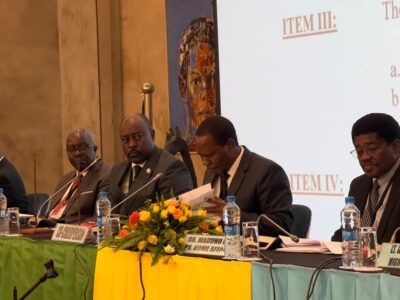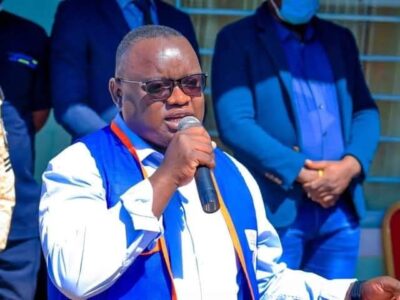Former First Lady, Esther Lungu, has sought the court’s permission to appeal a ruling that ordered the forfeiture of her properties in Lusaka’s State Lodge area to the government.
This appeal followed a September 24 decision by the Economic and Financial Crimes Court (EFCC) at the High Court, which mandated the confiscation of four properties — double-story flats numbered 9334/1, 9334/2, 9334/3, and 9334/4 — with a combined estimated value of K66 million.
The court deemed these assets “tainted” and ruled for their forfeiture along with associated costs.
Lungu had filed an application to appeal the judgment, arguing that the court’s decision was flawed.
Her application is supported by an affidavit outlining multiple grounds for appeal, contending the court’s conclusion that the properties were procured with proceeds of crime.
According to her affidavit, she was the registered proprietor and interested party of the properties and was “desirous of appealing against the judgment,” which she claimed impacted her constitutional right to property.
The appeal outlined seven primary grounds, including a claim that the court improperly evaluated the evidence.
She argued that the EFCC failed to adequately establish a link between alleged criminal activity and the properties in question.
Specifically, she contended that the court erroneously relied on the difference between her income and the cost of developing the properties to assert they were tainted.
Lungu’s affidavit argued that the court did not adhere to the principles of stare decisis, ignoring a precedent set in the 2021 Sydney Mwansa v. The People case, where the Court of Appeal mandated that non-conviction-based forfeiture must clearly identify an offense and prove a connection to the property.
She contested the valuations presented, which claimed the properties were worth K66,100,000, and that development costs reached K41,586,110 as of November 2022.
She asserted that the court improperly focused on her financial means rather than considering the role of her husband, former President Edgar Lungu, in the properties’ construction.
The former first lady’s application stated that the court wrongly placed the burden of proof on her, contrary to the Forfeiture of Proceeds of Crime Act, and that it failed to consider key sections of the act.
She stressed that the right to appeal was fundamental, especially given the case’s implications for her constitutional rights and reputation.
“This is a novel issue with public significance and it is crucial for the Court of Appeal to clarify the provisions of the Forfeiture of Proceeds of Crime Act of 2010,” the former first lady’s affidavit reads, underscoring her belief that the matter involved complex legal issues warranting review by a higher court.
Lungu contended that if her appeal was denied, it would severely prejudice her right to defend her property and contest accusations of criminal conduct linked to her properties.
WARNING! All rights reserved. This material, and other digital content on this website, may not be reproduced, published, broadcast, rewritten or redistributed in whole or in part without prior express permission from ZAMBIA MONITOR.












Comments